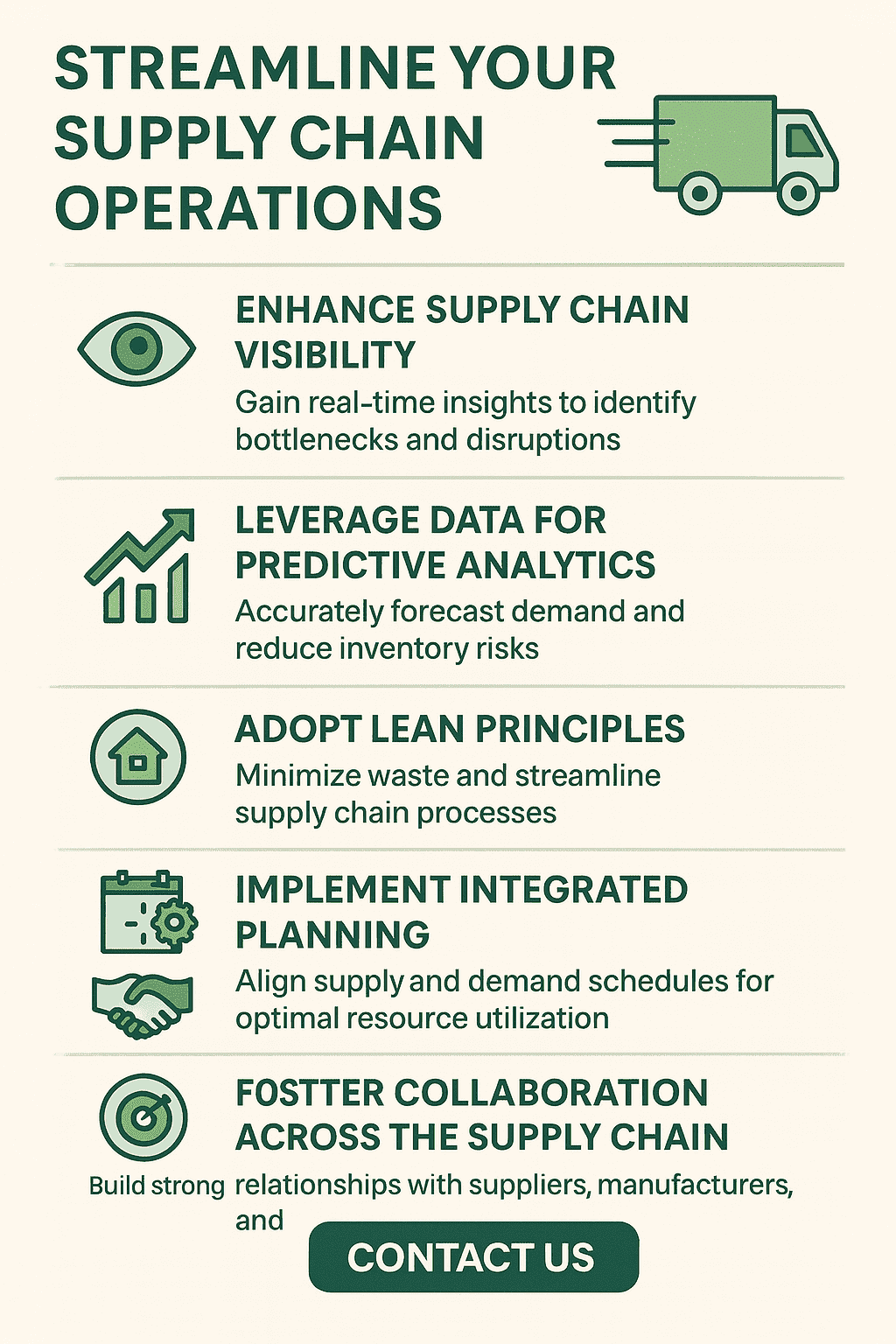Effective supply chain management (SCM) is not merely about moving products from point A to point B; it’s about creating a seamless flow of information, goods, and finances to meet customer demands while optimizing costs. Streamlining your supply chain operations can significantly improve productivity, cost savings, and overall organizational success.
The Importance of Efficient Supply Chain Management
A well-managed supply chain is the backbone of any successful business. It involves coordinating various activities such as procurement, production, warehousing management, transportation, and distribution. When these elements are aligned and function smoothly, the benefits are manifold: reduced operational costs, faster time to market, improved customer satisfaction, and increased profitability.
However, many organizations struggle with inefficiencies in their supply chain management process. These inefficiencies can stem from a lack of visibility, poor forecasting, over-reliance on manual processes, and inadequate collaboration among stakeholders. To overcome these challenges, businesses need to adopt strategic approaches that enhance SCM efficiency and drive continuous improvement.
Key Strategies for Streamlining Supply Chain Operations
1. Enhance Supply Chain Visibility:
Visibility is critical in managing a supply chain effectively. By gaining real-time insights into every stage of the supply chain management process, from suppliers to customers, organizations can quickly identify bottlenecks, anticipate disruptions, and make informed decisions. Implementing advanced technologies such as IoT, RFID, and AI-driven analytics can provide the necessary transparency to monitor operations and optimize processes.
2. Leverage Data for Predictive Analytics:
Data-driven decision-making is a game changer in supply chain management. By analyzing historical data and market trends, companies can forecast demand more accurately, optimize inventory levels, and reduce the risk of stockouts or excess inventory. Predictive analytics can also help in identifying potential risks and opportunities, allowing businesses to stay ahead of the curve.
3. Adopt Lean Principles:
Lean management principles focus on minimizing waste and maximizing value. By adopting lean strategies, organizations can streamline their supply chain processes, reduce lead times, and enhance overall efficiency. This includes practices such as just-in-time inventory, continuous improvement (Kaizen), and value stream mapping to eliminate non-value-added activities.
4. Implement Integrated Planning:
Integrated supply chain planning aligns all aspects of the supply chain, from production to distribution, ensuring that resources are utilized optimally. By synchronizing supply chain activities with demand forecasts, companies can reduce costs, improve service levels, and enhance agility in responding to market changes.
5. Foster Collaboration Across the Supply Chain:
Collaboration is key to successful supply chain management. Building strong relationships with suppliers, manufacturers, and distributors can lead to better communication, improved trust, and more efficient operations. Collaborative planning, forecasting, and replenishment (CPFR) initiatives can help align the goals of all stakeholders and drive better outcomes.
6. Invest in Technology and Automation:
Technology plays a pivotal role in streamlining supply chain operations. Investing in supply chain management software, automated warehouses, and transportation management systems can significantly enhance efficiency, reduce errors, and lower operational costs. Automation also frees up human resources to focus on more strategic tasks, such as process improvement and innovation.
7. Focus on Continuous Improvement:
Supply chain management is not a one-time effort but a continuous journey. Regularly reviewing and optimizing processes, embracing innovation, and adopting best practices are essential for maintaining a competitive edge. Continuous improvement programs, such as Six Sigma, can help identify areas for enhancement and drive long-term success.
How Faber Infinite Can Help
At Faber Infinite Consulting, we understand the complexities of supply chain management and the impact it can have on your organization’s bottom line. Our proven methodologies and unique toolkits are designed to help organizations build Best In Class factory layouts, streamline their SCM operations, and achieve remarkable financial outcomes.
Whether you’re coming up with new plants, revising layouts, or expanding your current setup, Faber Infinite offers tailored solutions that deliver exponential financial benefits in the short term. Our approach includes linking our fees to the deliverables, ensuring that we are fully invested in your success.
One of our clients, a leading manufacturing organization, experienced a 20% increase in forecast accuracy, a 17% reduction in overtime, and a 30% reduction in finished goods spoilage after implementing our supply chain management strategies. These results were achieved through a phased implementation of our solutions, allowing ROI to be realized progressively.
In conclusion, effective supply chain management is essential for any organization looking to achieve operational excellence. By adopting the right strategies and leveraging the expertise of Faber Infinite Consulting, you can streamline your operations, reduce costs, and position your business for long-term success in the competitive global market.
Ready to optimize your supply chain?
Contact Faber Infinite today to learn how we can help you achieve operational excellence.
Contact us





